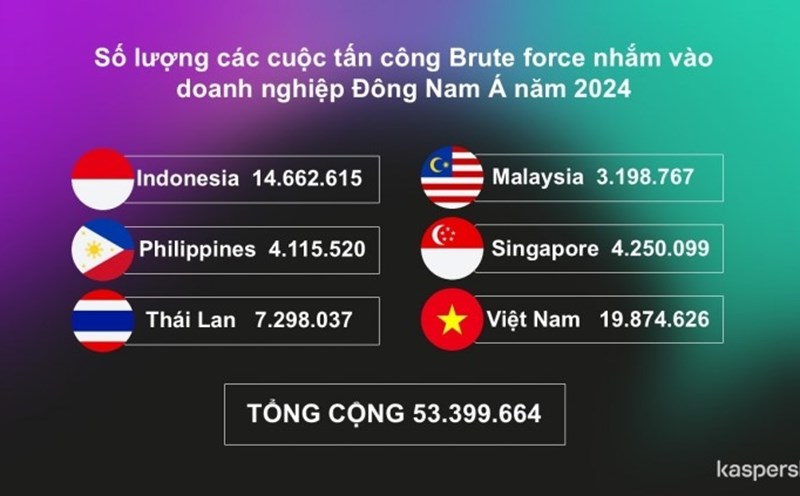On May 23, the Vietnam Security Summit 2025 event took place in Ho Chi Minh City, organized by the National Cyber Security Association (NCA) and IEC Group.
This is a prestigious annual event on information security, aiming to become a prestigious forum to help policy makers and strategists, leading experts, and leading domestic and foreign solution providers meet, discuss and discuss the latest trends in cyber security, advanced security technology solutions, especially the potential application of artificial intelligence in this field.
Speaking at the event, Mr. Vu Ngoc Son, Head of NCA's Technology Department, said that Vietnam is among the countries at high risk of cyber attacks. In 2024, the association recorded more than 659,000 cyber attacks. More than 46.15% of agencies and enterprises in Vietnam were attacked by cyber attacks at least once in 2024.
That poses a big challenge in ensuring network information security, especially in the context of a serious shortage of human resources for this industry in Vietnam.
According to NCA's representative, in the next 3 years, Vietnam will be short of about 700,000 cybersecurity-specialized personnel. About 56% of enterprises in Vietnam do not have enough human resources for cyber security and information security.
The effect of this shortage is an increase in the number and severity of cyber attacks. Responding to incidents slowly and ineffectively. Enterprises and state agencies face difficulties in digital operations, said Mr. Vu Ngoc Son.

According to this expert, the shortage of personnel specializing in cybersecurity has many reasons. The most important thing is that Vietnam lacks quality supply. "Training quality cannot keep up with demand. The number of schools specializing in information technology and cybersecurity is not small, but the output is not guaranteed, and the personnel can not meet the requirements. Many students lack practical skills, Mr. Son pointed out.
In addition, the brain drain, many Vietnamese cybersecurity experts are attracted by foreign companies with high benefits and many development opportunities, which is also the cause of a shortage of cybersecurity personnel.
In addition, businesses and schools lack connectivity. Businesses do not participate in student training, and schools lack cooperation to update new trends. That leads to students lacking practical working skills, especially in large systems.
Faced with cybersecurity challenges in the context of a shortage of personnel, NCA representatives proposed solutions. Accordingly, training innovation plays an important role. Schools need to increase practical training, mandatory internships in attack simulation situations; cooperation between research institutes - schools - enterprises; AI training, retraining and converting IT engineers into AI-powered professions to operate cybersecurity systems.
Also at the event, cybersecurity experts, leaders of the Department of Cyber Security and High-Tech Crime Prevention, Ministry of Public Security; leaders of the Cyber Campaign Command, Ministry of National Defense shared and clarified the importance of ensuring cyber security and creating trust in the new era.
Together with other experts, they attended and discussed with a plenary session and 3 thematic seminars on related issues such as: Data protection & privacy in the artificial intelligence era; Cloud security in the digital world; Ensuring the safety of important information technology infrastructure.











